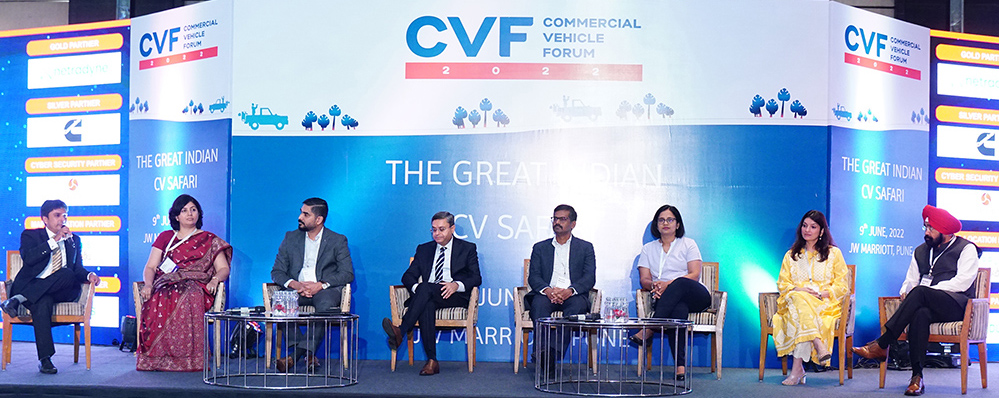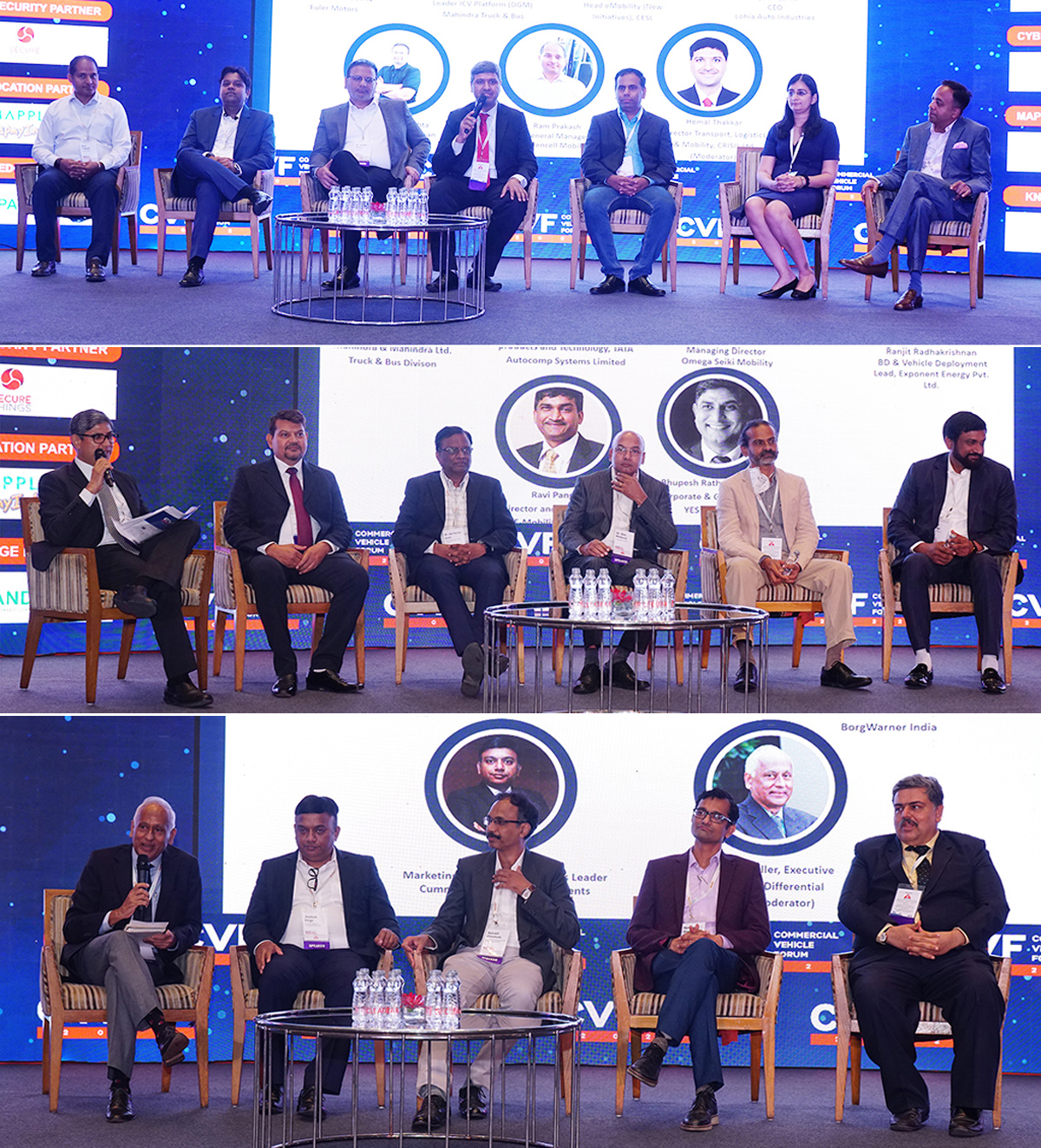The premium CV conference held in Pune brought together 400+ senior level executives from 200+ brands as attendees, 60 industry experts as speakers and over 35 partners

The sixth edition of Commercial Vehicle Forum (CVF), India’s premium C level commercial vehicle and road transport event, brought together senior professionals from the CV industry under one roof. It took place on June 9, 2022 in person at the JW Marriott Hotel in Pune. The event welcomed 400+ senior level executives from 200+ brands as attendees, 60 industry experts as speakers and over 35 partners. After a two-year hiatus, CVF came back to its pre-pandemic glory with premium content and excellent on-ground execution for the sixth physical edition.
Like the previous editions, CVF had again taken a dual approach this year also – first offering a broad narrative on the trends and developments in the commercial vehicle industry discussed in the CXO panel and then using a selection of topics running in parallel to explore in more detail the future opportunities. After the CXO panel session, CVF had two conference tracks running parallel to provide greater depth, particularly on future trends and electric vehicles (EVs) and alternative fuels. Participants attended the track that they found most suitable to their interest area.
Salient Features
CVF has become the crossroads for senior level professionals from CV manufacturers, automotive suppliers, trade associations, CV dealers and the government alongside some of the worlds’ most disruptive logistics service providers over the past six years. The current edition included a series of insightful keynote addresses, research presentations and panel discussions. Jinal Shah, Managing Director at Expandus Consulting, opened the proceedings with an inaugural presentation on the Indian CV and road transport industry. He talked about how the past, present and future of the industry looks like and where it stands as an industry.
He said: “Our industry was on a cruise control mode since 2017 but then came the transition from BS IV to BS VI and GST implementation, the benefits of which we are seeing in the economy.” He added that the pandemic led to demand issues, shorter turnaround time for trucks but on the other hand it also helped us reset belief on the industry front, accelerated traditionalisation and localisation and gave rise to new opportunities. Satyakam Arya, Managing Director and CEO, Daimler India Commercial Vehicles, chaired the conference.
He said: “The CV industry has weathered many storms over the years and currently this has made everyone stronger and more resilient.” He saluted all the players in the industry starting from OEMs, component suppliers, fleet owners and drivers for their passion and perseverance over the past two years of the pandemic. He added that the one thing which everyone missed was to meet in person and exchange ideas. The CVF theme titled ‘Great Indian CV Safari’ captured this in the right spirit and brought likeminded experts together. Arya further said that the industry today is at the cusp and mobility as we know over the years is going through a fundamental change from the drawing board to reality.
His presentation laid emphasis on recounting where it all started – from the first truck in the world being designed by Gottlieb Daimler in 1896 to the first truck being launched in India in the year 1954 by Daimler Benz. “A lot has changed since then and the industry has gone through changes in unprecedented times. The year 2020 was a tough one due to the pandemic where sales dropped by 50% to half a million units and companies bore losses due to lockdowns and unlocks. Gradually things started getting better, and in the last year the market recovered annually with close to 700,000 units, yet remaining below the level achieved in 2018,” he pointed out.
After the chairman’s address, the conference’s CXO panel of experts debated on the top trends in the CV and road transport industry and how the industry outlook shall be in the near to long term. The moderator for the session, Jinal Shah, Managing Director, Expandus Consulting, set the tone of the session and discussed how we are looking at reducing high crude oil bills and at the same time higher cost of certain components and raw materials, coupled with rapid technological advancements and at the same time managing the pressure of maintaining if not reducing the cost of ownership from customers.

Future Trends
Since the main topic of discussion was on mega trends and disruptions, Jinal Shah asked as to how the industry is looking at cleaner and zero emission technologies. He started with Anjali Pandey, Vice President (Engine and Components Business), Cummins Technologies India (P) Ltd., asking her if she sees the end of diesel anytime soon. She answered this by saying: “For diesel we see a longish transition because there is enormous work happening in the diesel space and emissions are here to stay. Diesel alternatives are not that easy and the adoption of these technologies should be economical for the end user.”
A few other topics the panellists discussed included building a sustainable future, technological disruption and challenges such as tapering down of the overall economic growth. The event included a host of panel discussions on a wide range of important and interesting topics, namely, a) future trends and EV and alternative fuels, b) ADAS technology, telematics, connectivity and more, c) electric CV revolution, d) sourcing and supply chain, e) battery, electrification and charging infrastructure, f) all digital: customer experience from sales to predictive maintenance, and g) alternative fuels: green choices.